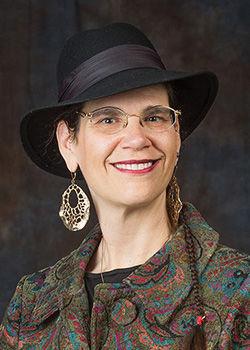Prof. Nechama Leibovitz's voice roared across the room and I shrank into my seat. It was a study seminar that Gesher (an Israeli organization that focused on bridging and binding together Jews of all lifestyles in Israel) was holding in Tzfat in the late Seventies. I was one of a dozen and a half Israeli teens that were blessed to learn Nechama's method of biblical commentary with Nechama herself. Yes, everyone called her "Nechama", even when speaking directly to her! She glared at us and roared: "Do you think that the Ten Commandments had Rashi's commentary on the bottom of the tablets when Moshe brought them down from the heavens??? I'm asking you to read the verse and tell me what it says, not to quote what you remember Rashi explains!" It wasn't that she didn't want us to labor, ten minutes later, on Rashi and other commentaries, trying to understand what they were seeing that we didn't, and how, using one definitive word, they differed from each other. But first and foremost she wanted us to read the Torah with our naked eyes. Along with the fear of her roar I was also relieved - I had flunked my first Rashi exam in tenth grade, since I couldn't figure out what was troubling Rashi - I was happy to put off having to succumb to Nachama's frightening glare if she asked me, "What was Rashi's problem?" And yes, by the end of tenth grade I learned how to figure out what my teacher thought was Rashi's question, even when I knew that he really had a very different agenda then what my teacher proposed
Nonetheless, there are those moments where Rashi's words reverberate thirty years later, only this time with different questions.
In preparation for Ya'akov's encounter with his brother Esav, the Torah tells us: "Then Ya'akov was greatly afraid and distressed" (Breishit/Genesis 32:8). Clearly, Rashi wants to know what the difference is between fear and distress. Is fear not a form of stress, is stress not a form of fear, asks the Midrash Rabba 76(II), on our verse? Rashi quotes this Midrash, teaching us that Ya'kov was concerned "lest he be killed, lest he kill."
"Lest he be killed" I understand - Esav was on his way with four hundred men. And Esav had a lot of good reasons to want to square off an old bill that he carried between himself and his brother. But Ya'kov killing, "lest he kill" - who was there with him that could help him overcome his brother and fleet? The women and children were going to stand behind him as support in his battle with his brother? And why would Ya'akov be afraid of killing his brother? What was it that he was harboring in his heart for all those years that would muster up so much energy and strength that would enable him to overcome Esav? Was it the years of estrangement, far from his home? Was the encounter with Esav a 'second chance' so-to-speak, enabling Ya'akov to do all he wanted to do when confronting Lavan, but there he held back? There are many ways we could begin to unpack this question. Why was Ya'akov distressed that he might kill his brother?
I would like to offer one possibility by asking a preliminary question: How many of our Rabbis and teachers spoke to us about the shadow / the dark side of the Torah?
Peter Pan is serious. The theatrical presentation of Peter Pan begins with his attempt to sew his shadow back on! Like Carl Jung he understands that anything that has a true existence has a shadow. He can not embrace life without embracing his shadow! The Torah, as a code of law, can evoke judgment; the quest for spiritual intimacy with the Divine can draw one to arrogance and elitism, as examples of what this shadow looks like. The Ishbitzer Rebbe (Rabbi Mordechai Yoseph Lainer of Ishbitza, 1800 - 1853) on last week's Torah portion teaches us that it is in the place of our strength that our true weakness is revealed.
Could it be that Ya'akov is distressed for he knows that when he stands in front of Esav what he will be seeing is not only his twin brother, but also the 'Esav' qualities that he himself has buried deep within himself? Is he distressed because for all those years he could make believe that they were not part of his biography, not a component of his biological and spiritual D.N.A.? Does he know that the only way to truly meet his brother, the only way to pave his way home is by virtue of owning his ability to kill his brother, "lest he kill"?
Ya'akov Avinu (our patriarch), Peter Pan, and each and every one of us, is asked to stand in front of a mirror, and with the naked eye that Nechama asked us to, read the verses of the Torah. We are asked to see our shadow staring at us. As in the way that Ya'akov asks the angel that he struggles with for his name (Breishit/Genesis 32:31), as in the manner with which Ya'akov receives a new name (Brieshit/Genesis 32:29), we are asked to name our shadow. We may see Ya'akov as Ya'akov or Yisrael, but when Ya'kov is alone, when he talks to himself, could it be that he calls himself 'Esav'?
The Parmishlaner Rebbe (Rabbi Meyer of Parmishlan, 1703 - 1773) says that there are three Mitzvote (commandments) that we enter into with the totality of our being - the Land of Israel, the Sukkah and Shabbat. Three mitzvote, he teaches, that we embrace with the complexity of our personality. Three places, moments, where one cannot hide. We enter these three hand in hand with our shadow.
May the light of the Shabbat candles in our homes enable us to see our shadow flickering in the darkness of the night.
Shabbat shalom

